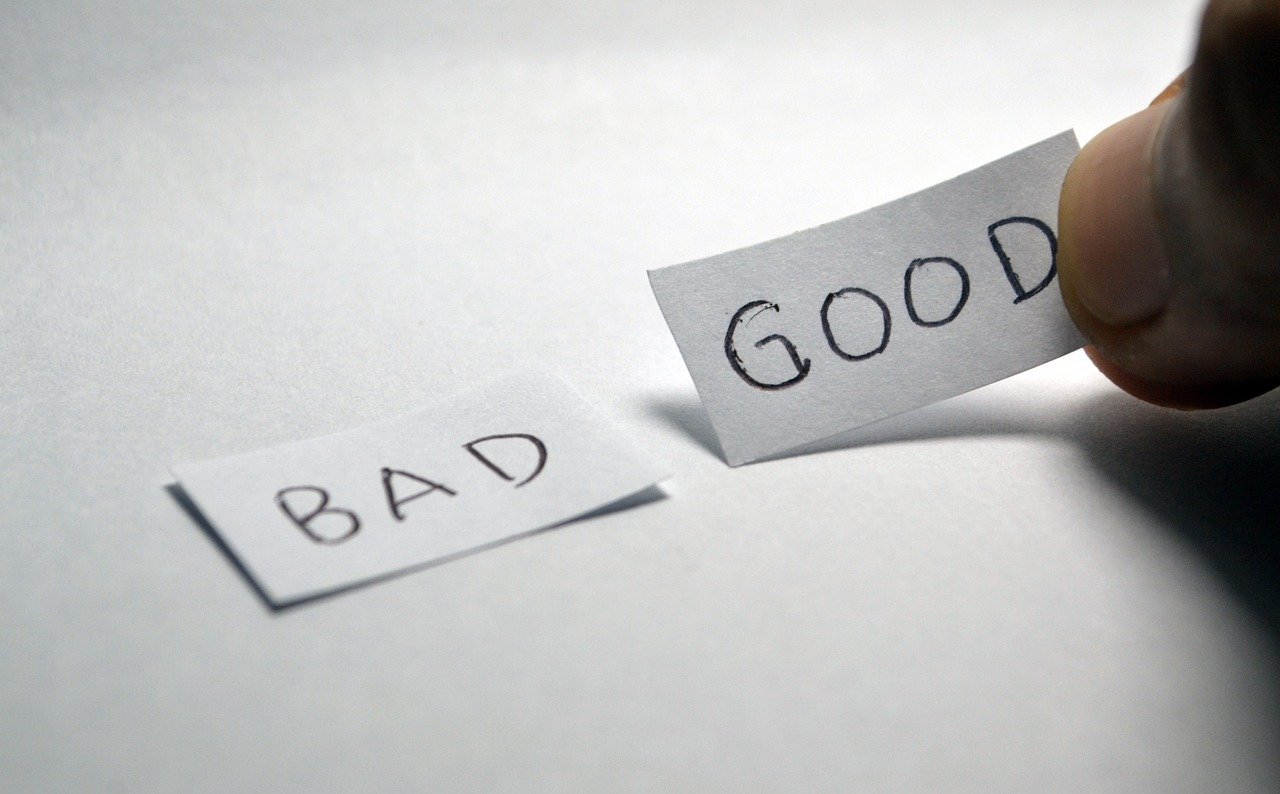Bad is Stronger than Good!

In a debate between an optimist and a pessimist, it’s observed that reactions can differ. Pessimists might appear more visibly affected due to their inclination towards focusing on potential negative outcomes. When encountering the more positive outlook of an optimist, the contrast in viewpoints can sometimes highlight their own concerns more starkly.
Regardless of whether you’re a pessimist or an optimist, when a problem comes up, it takes all your attention. We humans tend to take for granted all the positive things in our lives: the roof over our heads, the job that pays our bills, the family that provides emotional support, the air we breathe, and many others; then, when a single issue appears, we become fixated on it. But why is it that one problem can overshadow so many blessings? This was my argument in defending the idea that the human mind is biased toward negative thoughts. However, my optimistic counterpart argued against generalizing my personal view to all of humanity, which led me to search for evidence.
Is Bad really Stronger than Good?
So, here we have this comprehensive research review on the effect of bad versus good by Roy F. Baumeister & his colleagues (2001). In this study, they drew on a wide range of studies resulting in the unfortunate truth that impact of bad outweighs good in different areas. This research was published in Review of General Psychology under the name “Bad Is Stronger Than Good”.
The theory of “rotten apple” in leadership seems to be a precise reflection of this statement. According to this theory, negative behaviors of a single employee – such as referring from making efforts, spreading rumors, or withholding resources and information – could destroy the morale of the whole team, while there is no evidence supporting the opposite.
From a wider angle and given the above-mentioned research, such an effect is not limited only to the work environment, but rather it exists in many other instances in life. Following is some examples mentioned in this paper. Many of these studies even tried to quantify the influence of bad and good to ensure a fair comparison through equal magnitudes of both effects.
The negative emotion associated with losing a sum of money is considerably more powerful than the positive emotion coming from winning the same amount.
For a close relationship to be successful, the positive behaviors must outnumber the negative ones by at least 5 to 1.
Punishment leads to a more effective learning process than reward! Children were given marbles and asked to do some tasks. If accomplished the tasks, they could keep the marbles, otherwise, they had to lose them. The latter proved to be more effective.
Nevertheless, the detrimental impacts of punishment such as anxiety and disorientation exclude it from the list of the optimal learning methods
The brain processes negative information faster and at a deeper level.
Having to choose between hearing bad news or good news first, 77% to 88% of people decide to hear the bad one first.
Despite the repression (deliberate forgetting of bad memories by the brain), interviews with subjects up to 50 years old demonstrated the dominance of unpleasant memories even among those who considered their childhood as a happy period of time.
Individuals tend to remember bad behaviors better than good ones. Yet this is not the case when it comes to oneself, i.e., we are more likely to better remember the negative behaviors of others but not those of ourselves.
In an attempt to investigate the contribution of nature (genetic) versus nurture (environment) to children’s IQ, nature (genetic) appeared to have a significant effect only among educated families, while the same effect was revealed for nurture (environment) among families with lower levels of education.
In other words, educated/successful parents couldn’t significantly contribute to their children’s IQ, but having bad parents/environment induced negative effects on the level of children’s intelligence. Simply put, there is a high chance that the high intelligence of a bright child cannot be blossomed in a bad environment, while a good environment will not make a child brighter.
These are just a few examples among many provided in this great study. This, then, may raise this question: What is the advantage of knowing bad is stronger than good?
When it comes to any psychological effects, including cognitive biases, awareness is an important key to controlling these effects.
The so-called negativity bias is the heritage of our ancestors; something they need to develop in order to survive. Thus, it served a purpose in our evolutionary history; however, in modern times we may not need it insofar as they did. It is then crucial to be aware of this bias, accept it and actively work to overcome it, particularly when it’s not of any help to us.
Final Thoughts
In light of knowing this, you better understand why negative emotions hit you stronger, why bad news affects you deeper, and why negative feedback or criticisms at work drain your motivation much more than you get motivated by positive feedback or compliments. So, this could then help with controlling these emotions, managing stress and anxiety coming from them, and in general making better decisions.